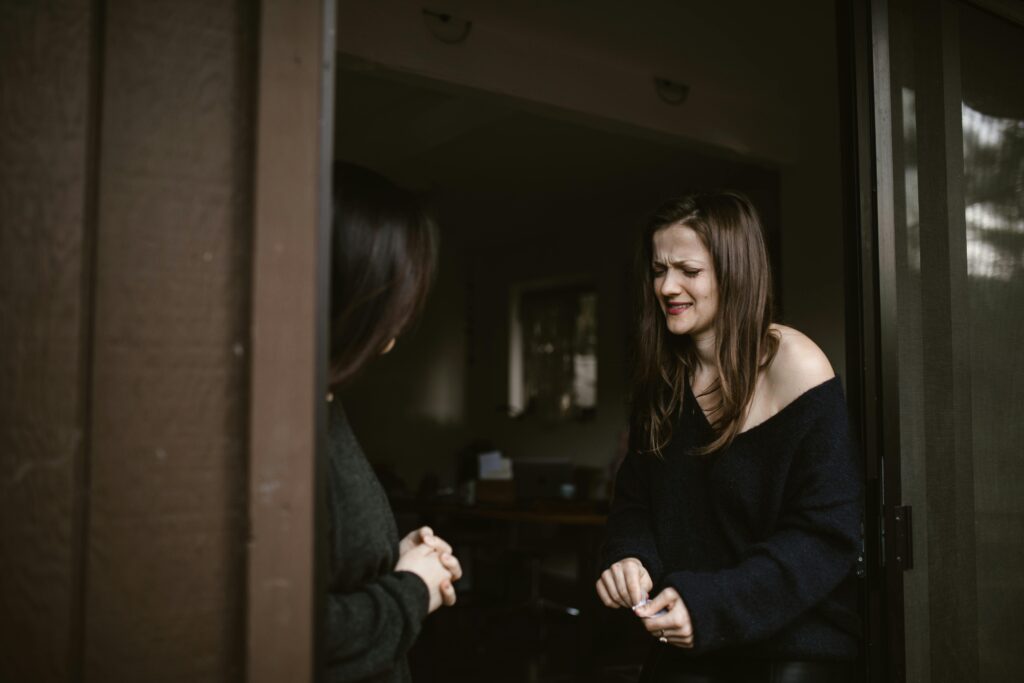Love is one of the most powerful emotional needs in human life. Yet for many people, the search for love feels frustrating, disappointing, or confusing. It is not uncommon to find yourself repeatedly drawn to the wrong people, investing energy into relationships that leave you unfulfilled. This pattern often runs deeper than just “bad luck.” The urge to seek love from the wrong places can stem from psychological habits, early childhood experiences, unmet emotional needs, and distorted views of self-worth. Understanding these factors can help break the cycle and lead to healthier, more rewarding connections.
Unmet Childhood Attachment Needs

Many people who chase love in the wrong places have experienced unmet emotional needs in childhood. According to attachment theory, the way a child bonds with caregivers shapes how they perceive love and relationships later in life. If a child grows up with inconsistent affection, neglect, or emotional unpredictability, they may develop insecure attachment styles. These can include anxious attachment, where individuals crave closeness but fear abandonment, or avoidant attachment, where they suppress their need for connection but still long for it internally. Both patterns can lead to an attraction to emotionally unavailable or inconsistent partners in adulthood.
Confusing Intensity with Love

People who grow up in emotionally chaotic environments often confuse emotional intensity with genuine connection. They may find themselves drawn to relationships that are dramatic, volatile, or unpredictable. This is because their nervous system becomes conditioned to associate emotional spikes with passion or meaning. In reality, these relationships lack stability and safety, which are essential for lasting love. The constant highs and lows may feel familiar, but they often recreate the very instability the person is trying to escape.
Low Self-Worth Creates Desperate Seeking

When someone does not believe they are worthy of love, they may seek validation from others at any cost. Low self-esteem can lead to accepting poor treatment or settling for crumbs of affection. This often comes from a subconscious belief that love must be earned or that attention, even if negative, is better than none at all. People with low self-worth may even sabotage healthy relationships, believing they are undeserving of kindness or stability. They may instead chase those who withhold love, reinforcing their belief that they are not enough.
Cultural Myths About Romantic Love

Modern culture often romanticizes obsessive or toxic love. Movies, music, and books sometimes depict unhealthy relationships as passionate or exciting. Phrases like “you complete me” suggest that personal wholeness comes from another person. These ideas can fuel unrealistic expectations and lead people to ignore red flags in pursuit of a fantasy. Instead of building healthy partnerships based on mutual respect and compatibility, they chase emotional highs and intense feelings that rarely last. These cultural messages can reinforce the idea that love must feel overwhelming to be real.
Trauma Bonds Feel Like Love

Trauma bonding occurs when people form attachments through cycles of abuse, manipulation, or emotional neglect. In these dynamics, periods of mistreatment are followed by intermittent affection or apologies. This cycle creates powerful emotional dependency. The brain releases dopamine and oxytocin during moments of closeness, reinforcing the bond even when the relationship is harmful. Trauma bonds are particularly deceptive because they can mimic the emotional highs of love. People may stay in or return to toxic situations, believing they are experiencing deep connection when they are actually trapped in a cycle of pain and relief.
Emotional Unavailability Is Mistaken for Mystery

Some individuals equate emotional unavailability with challenge or intrigue. When a partner is distant, inconsistent, or aloof, it can trigger a sense of urgency to win them over. This pursuit can feel exciting or rewarding in the short term, especially for those with anxious attachment patterns. However, emotionally unavailable partners rarely provide the connection or intimacy needed for a secure relationship. The person doing the chasing often ends up exhausted and hurt, mistaking the chase for chemistry rather than recognizing it as a dysfunctional dynamic.
Reenacting Family Roles

Psychologically, many people are drawn to partners who replicate familiar family dynamics. This is not always conscious. For example, if a person had to earn love from a distant parent, they may pursue partners who offer similar emotional detachment. This is called repetition compulsion, a term from psychoanalysis that describes the tendency to recreate unresolved childhood experiences. The subconscious mind believes that if the outcome can be changed this time, it will bring healing. In reality, repeating these patterns only deepens emotional wounds and reinforces toxic cycles.
Fear of Healthy Intimacy

Ironically, people who crave love may also fear genuine intimacy. Healthy relationships require vulnerability, consistency, and emotional presence. For those who have been hurt or betrayed, real closeness can feel threatening. They may choose unavailable partners or unstable relationships as a way to avoid the risks of deep emotional exposure. This fear may not be obvious. It can show up as disinterest in kind partners, discomfort with emotional openness, or a tendency to run from connection once it becomes real. The fear is not of being alone, but of being seen and rejected.
Misreading Chemistry as Compatibility

Attraction does not always equal alignment. People often mistake initial chemistry for compatibility. Strong physical or emotional attraction can cloud judgment, especially in the early stages of a relationship. This can cause people to overlook incompatible values, communication issues, or disrespectful behavior. The rush of attraction activates brain chemicals that feel intoxicating but can fade quickly if the emotional foundation is weak. True compatibility involves shared values, mutual respect, and the ability to navigate conflict together, not just a spark of excitement.
Social Pressure to Be in a Relationship

Society often sends the message that being single is a problem to be solved. From a young age, people are taught that partnership is a milestone of success or happiness. This pressure can cause individuals to settle for relationships that do not serve them, simply to meet expectations. Fear of being alone or judged can lead to choices rooted in urgency rather than wisdom. This can result in choosing anyone who shows interest rather than someone who is actually compatible. Seeking love out of fear rather than desire rarely ends in fulfillment.
The Fantasy of “Fixing” Someone

Many people are drawn to relationships where they can be the helper, the fixer, or the savior. This dynamic often appeals to individuals with a strong need for control or worth. The idea is that by loving someone enough, they will change. Unfortunately, this rarely works. People only change when they want to, not because someone else wills it. Trying to fix others can drain emotional energy and create unbalanced relationships. It also takes the focus away from the person’s own needs and growth, reinforcing cycles of emotional neglect.
Read More: Psychologists Reveal 4 Questions That Predict Relationship Problems Early
Emotional Hunger Clouds Judgment

When someone is emotionally starved, they may not be discerning about who they let in. Emotional hunger can make any attention feel like affection and any kindness feel like love. This makes people vulnerable to manipulation, love bombing, or superficial flattery. Emotional hunger often stems from a history of emotional neglect or trauma, where needs were minimized or ignored. When those needs go unmet for long periods, the brain becomes hyper-alert for any sign of connection. This can lead to jumping into relationships quickly and ignoring warning signs.
Healing Requires Relearning Love

Craving love in the wrong places is not a character flaw. It is often a reflection of deeper emotional wounds and unmet needs. Healing starts by understanding where those patterns come from. Therapy, especially approaches like inner child work or trauma-informed care, can help address the root causes. Building self-worth, learning to set boundaries, and practicing self-compassion are key parts of the healing journey. Love should not feel like a battle. When you understand your patterns, you can make different choices, and those choices lead to healthier, more fulfilling relationships.
Emotional Patterns Form Early In Life

If you find yourself craving love in all the wrong places, you are not alone. This experience is more common than many realize and usually stems from emotional patterns formed early in life. Whether it is due to insecure attachment, trauma, low self-worth, or cultural messages, the good news is that these patterns can be unlearned. Healthy love is not chaotic, confusing, or painful. It is built on respect, safety, and mutual care. By addressing the roots of your behavior, you can begin to make choices that align with your emotional health rather than your past pain. The love you deserve is not found in chasing the wrong people, but in honoring your own worth and opening up to those who truly see and value you.
Read More: 10 Phrases Compulsive Liars Use to Manipulate Without Being Caught
Disclaimers: This article was created with AI assistance and edited by a human for accuracy and clarity.

